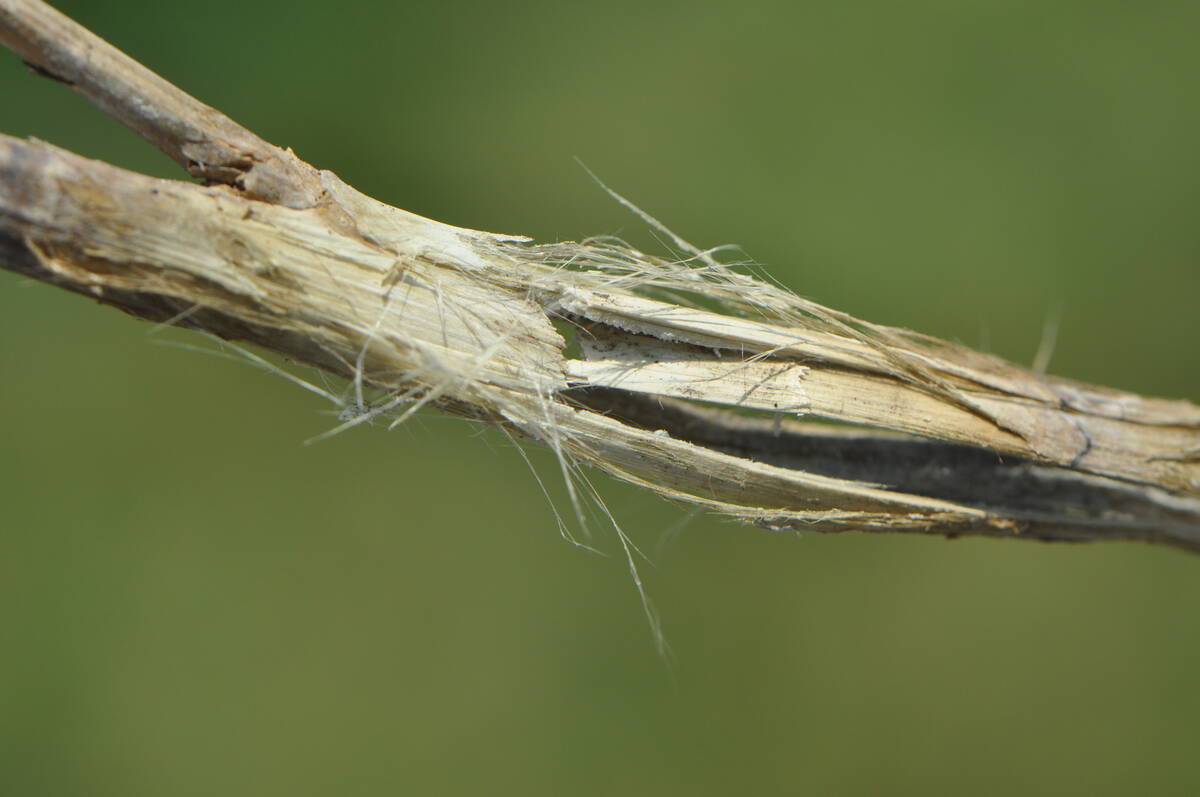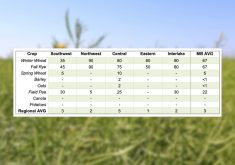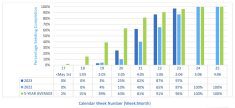Cash bids for flaxseed in Western Canada have taken a dramatic turn for the worse with some of the decline being linked to European concerns the crop contains genetically modified organisms.
There were reports that Viterra has lowered its bids in Manitoba to as low as $6.78 a bushel, which would be down significantly from bids in the province ranging from around the $10-a-bushel level just a few days ago. A number of elevator companies across the Canadian Prairies are believed to have halted their flax-buying program altogether.
Read Also

Manitoba sclerotinia picture mixed for 2025
Variations in weather and crop development in this year’s Manitoba canola fields make blanket sclerotinia outlooks hard to pin down
“While details on why flax bids have dropped so sharply in Western Canada remain sketchy, there are rumours circulating that a cargo of Canadian flaxseed has been prevented from being unloaded at a port in Europe,” Mike Jubinville, a market analyst with ProFarmer Canada said. “All the signs point to GMO issues.”
Barry Hall, president of the Canadian Flax Council confirmed that European labs have been testing Canadian flaxseed and initial analytical results indicate the presence of NPTH, a genetic marker, in some samples.
Hall said that while this, in itself, does not prove that the flaxseed is genetically modified, many buyers are indicating this to be the case.
Hall stressed there are no GM varieties of flaxseed registered or commercially produced in Canada.
He said the Flax Council was working closely with the Canadian Grain Commission and its Grain Research Laboratories to come up with an explanation.
Both Hall and Jubinville said this development could not have come at a worse time for the Canadian flaxseed industry, noting that at this time of year sales of Canadian flaxseed to Europe generally begin to be put together.
Jubinville said that between 500,000 to 700,000 tonnes of Canadian flaxseed, or roughly two-thirds of Canada’s production, is shipped to European destinations on a crop year basis.
“Flaxseed bids had been starting to weaken prior to this news as the western Canadian crop looked to be larger than first anticipated and as carry-over stocks of the commodity begin to move towards burdensome levels,” Jubinville said.
Statistics Canada is currently projecting a 2009-10 (Aug./July) Canadian flaxseed crop of 915,000 tonnes, which is larger than expected and up from the 2008 level of 861,100 tonnes.


















